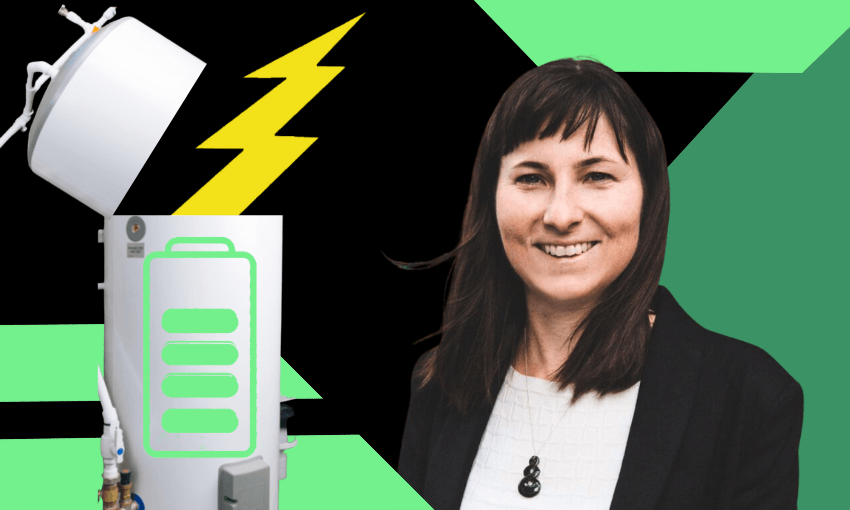Could your hot water cylinder be the key to cheaper household energy and a smaller carbon footprint? Electric Kiwi’s Huia Burt tells Bernard Hickey why the way you use hot water matters more than you might think.
In the midst of our cost of living crisis, the call for innovative energy solutions has never been more urgent. As households grapple with rising expenses, could a hidden hero be lurking in your homes, ready to help save you money and reduce your carbon footprint? Huia Burt, co-founder and CEO of Electric Kiwi, believes that the average hot water cylinder might just be that hero. She joins Bernard Hickey on this week’s episode of When the Facts Change to explain how simple changes to our energy use could set an example of how New Zealand’s energy landscape could be turned on its head.
Electric Kiwi is one of a number of power companies that have created initiatives offering customers a period of free energy use each day, encouraging them to shift their consumption to off-peak times. Launched nearly a decade ago, Electric Kiwi’s Hour of Power leverages the prevalence of smart meters in Aoteroa – approximately 80% of households now have one.
One of the easiest ways consumers can cut costs involves taking advantage of their hot water cylinders, which Burt describes as “effectively a battery”. By heating water during off-peak times, households can enjoy the benefits of lower energy costs while contributing to a greener grid. “Ninety-nine percent of people will not notice any difference,” she says.
By creating habits around energy use, like running dishwashers and washing machines during designated hours, consumers can significantly cut their energy costs. This shift in consumption patterns also contributes to a reduction in reliance on non-renewable energy sources, making it a win-win for bank balance and the environment.
Getting more customers to embrace load shifting their power use is a simple approach that could unlock significant savings for households across the country. “What we’re trying to encourage is behavioural change,” Burt says, likening it to the adoption of reusable bags at supermarkets.
Yet, with all this potential for change, Burt acknowledges the broader challenges facing New Zealand’s electricity market. Despite technological advancements, innovation has been stunted. “When you have really strong competition, you do bring in that incentive… that impetus for innovation hasn’t really been there in the New Zealand electricity sector because of the lack of competition.”
She’s talking about an environment where larger energy providers are content with their market share and the profits that come with it, leaving smaller retailers to spearhead innovative offerings. Huia is clear on the need for a more competitive landscape, one that encourages continuous improvement in customer offerings.
So what does the future hold for the energy market in Aotearoa? Huia paints an optimistic picture. “The technology is available, it’s the scale that’s missing. It’s the incentive to actually move into those areas.” Burt believes the sector needs to overcome its reticence to give customers a seat at the table, saying “consumers are asking us for this. What consumers want is to reduce their costs and emissions, and as a retailer it’s our job to find every single way that they can do that.”
However, the question remains: Why would a capitalist company want to sell less product at a lower price? Huia has a refreshing perspective. “We know that the size of this market is going to expand exponentially with the right incentives.” With the right strategies in place, she believes companies can thrive while fostering sustainability, challenging the traditional narrative of endless consumption.
The goal is clear, to empower consumers by giving them more control over their energy usage and costs.
Click here for more episodes Bernard Hickey’s economics podcast When the Facts Change
